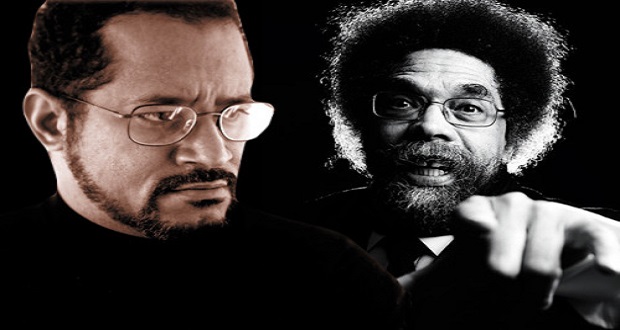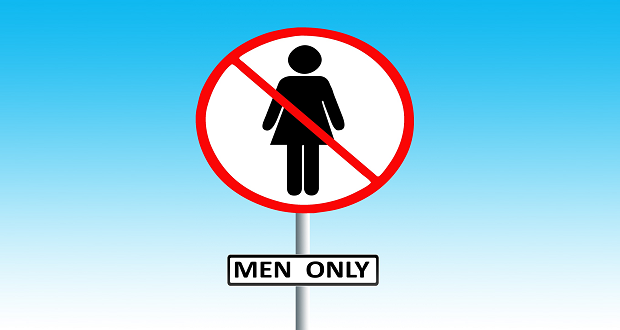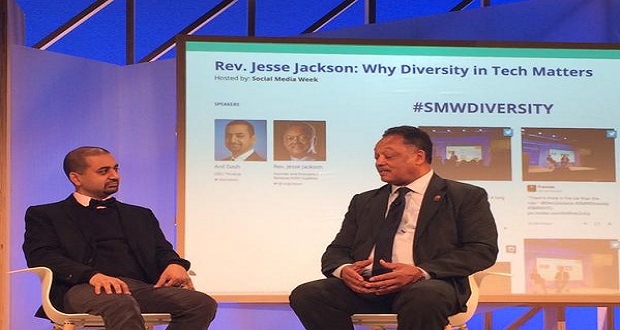
Image courtesy of HBCUDigest.com
Did you happen to catch the recent article by Michael Eric Dyson on Cornel West? If you missed it, or you heard about it but were uninterested, or if you’re unfamiliar with either figure, you may be proving my point. Michael Eric Dyson and Cornel West are each part scholar, part public intellectual, and part political-cultural critic (each having appeared in multiple media outlets). And both have been formidable and prolific voices in the academy and the public square —but they are especially treasured as black intellectual voices on culture, race, and politics. Although I’m only familiar with a fraction of their work, they have each shaped me as a thinker and a person—which is why Dyson’s recent article on Sunday caught my attention.
The article, entitled “The Ghost of Cornel West”, is a harsh, critical—some would argue vitriolic—look at the man Cornel West. Dyson’s basic argument is that the man we once knew in Cornel, with all of his depth and scholarly rigor, is overshadowed now by a different man that is more concerned with the spotlight and personally attacking those he critiques—thus the metaphor of the ghost. Ironically, many have reacted to the piece by suggesting that Dyson’s critiques of Cornel could equally be turned on himself—something I am unqualified and uninterested in pursuing here. There is however an inevitable amount of food for thought in the article, unsurprising from a man with Dyson’s rhetorical prowess and the depth and complexity of the man, Cornel, under question.
Dyson raises the issue of the qualifications and boundaries around modern day prophets and the prophetic tradition, the role and position of public intellectuals, and a stimulating section on the differences between the value of speaking versus writing. But unfortunately as readers, Dyson doesn’t allow us much time to ponder these things before we’re rushed along to more personal critiques of Cornel. The entire piece is incredibly personal—maybe too personal. Dyson’s intimacy with Cornel’s faults are revealing on the nature of their relationship and the purpose of the piece. But the nuances of the article are not what I want to share. I’m sure there will be many more qualified voices chiming in if you’re interested. In fact, you can watch Dyson defend his article in an interview with Marc Hill here—it’s interesting.
But what struck me most about this article was not everything in it, but everything and everyone that was left out. I get most of my news from twitter, and the reactions to this article were telling. Many had strong reactions—either defending one or the other of their preferred men or by dissecting the article for moments of dissent. But the vast majority of people I follow, especially the women scholars, activists, and intellectuals, were largely disinterested. And many more young people seemed to be completely uninterested or unaware of either man. Whereas I reacted strongly because of my connection to both men through their work (and I’m admittedly a sucker for controversy), I realized how gendered and generational this article was. Gendered in the sense that the article was an overt display of two large male egos vying for their rightful place as voices of authority—Dyson even uses the competitive language of boxing analogies throughout. It was interesting how many of my female friends read the article through the lens of competitive masculinity with such clarity—something I completely missed in my reading (guilty!). And it’s generational in the sense that the days of celebrity intellectuals may be a thing of the past—or a thing for a certain class that few see as relevant. It’s almost as if the article quietly passed them by…like a ghost.
Many have questioned the timing of the article, especially in light of the state of race relations in our country. But many more seem disinterested, which I understand. The entire article—and the relations between both figures—seems very far removed from the work of the faceless thousands who are entrenched in movements like Black Lives Matter—which was started by a black woman. The disinterest by so many makes me wonder if the voices of power are shifting from a few celebrity (male) intellectuals to the black, brown, and queer voices who are at the center of social movements against injustice—and who, by the way are largely women.
It reminds me of the iconic image of a black person throwing a flaming bottle while wearing an American flag t-shirt during the Ferguson protests. The face and gender are ambiguous. They are not a celebrity or public intellectual. And yet, many people identified this image with the movement. I even saw a picture of someone who had this image tattooed on their arm. The masses of faceless people who march and vote, and risk arrest are the real heroes—and they normally don’t get 10,000 word slots in major publications.
Please don’t get me wrong. I love intellectuals and deep thinkers—they’re important and their work inspires many. And I’m a writer, so I hope that writing matters. But as someone who loves words and ideas, I was equally inspired by the people who were unmoved, uninterested and unimpressed by an article that was tinged with celebrity, masculinity, and settling personal agendas–especially during such fragile times as these. I find it ironic that in Dyson’s attempts to dismiss Cornel as a silenced ghost, his own words pass unnoticed—ghost-like—by so many who see these feuds as irrelevant displays of masculine celebrity culture.



















Well done Travis!
Thank you Howard! That means a lot. I am a huge fan of your work. 🙂
Powerful article Travis!! On point, balanced, and insightful.
Thank you professor!